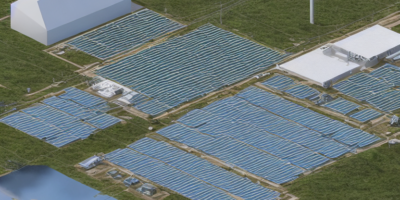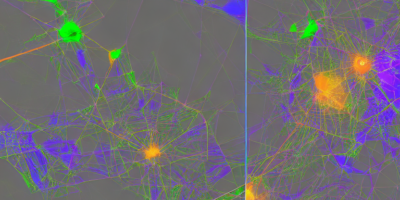In this survey, we explore the concept of adaptive Kalman filtering for systems with multiple parameters. We discuss how traditional Kalman filters struggle to handle such systems due to the non-linearity and uncertainty of the parameter values. To address these challenges, we introduce the idea of using a bank of local dynamic mode decomposition (DMD) models, each trained on a specific subset of the data, and combining them in a weighted average manner to obtain an adaptive polytopic extended Kalman filter (EKF).
Imagine you are trying to navigate through a dense forest with multiple paths. Each path represents one possible value of a parameter, and you want to find the optimal path that minimizes your error. Traditional Kalman filters treat each path as a separate entity and struggle to handle the non-linearity and uncertainty of the parameter values. Adaptive EKFs, on the other hand, use a bank of local DMD models, like different trees in the forest, to represent each path. These trees are trained on specific subsets of the data, allowing them to adapt to the changing environment. By combining the predictions of these trees using a weighted average manner, adaptive EKFs can efficiently navigate through the forest and find the optimal path.
We discuss various techniques for constructing the local DMD models, such as softmax functions and linear regression. These models are designed to satisfy two key properties: all weights must sum to one, and each weight must increase monotonically with decreasing distance from the current parameter value. We also explore how the adaptive EKF can handle non-linear parameter relationships and non-Gaussian noise.
The survey concludes by highlighting the advantages of adaptive EKFs over traditional Kalman filters, including improved accuracy, faster convergence, and better robustness to parameter uncertainty. However, we also acknowledge some challenges and open research directions in this field, such as handling large datasets, dealing with non-stationary environments, and improving the interpretability of the local DMD models.
In summary, adaptive Kalman filtering for multi-parameter systems is a powerful technique that leverages the strengths of both dynamic mode decomposition and extended Kalman filtering to overcome the limitations of traditional methods. By using a bank of local DMD models and combining them in a weighted average manner, adaptive EKFs can efficiently handle non-linear parameter relationships and uncertainty, leading to improved accuracy and robustness in various applications.
Electrical Engineering and Systems Science, Systems and Control
Adaptive Parameter-State Estimation for Nonlinear Systems with Uncertain Parameters



